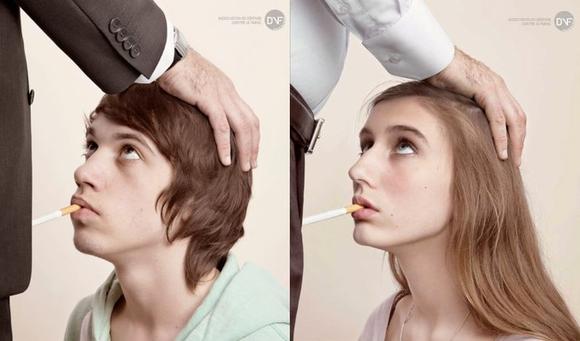A new study confirms that having oral sex for men can cause throat cancer more than smoking cigarettes.
In a study of over 270 throat-tumor samples, which were collected over 20 years ending in 2004, found that the percentage of oral cancer linked to the human papillomavirus, or HPV, surged to 72 percent from about 16 percent, according to a report released in the Journal of Clinical Oncology.
The researchers predict that in 18 years, the virus-linked throat tumors— which mostly affected men— will become more common than HPV-caused cervical cancer, the report found. HPV is known for infecting genitals.
“The burden of cancer caused by HPV is going to shift from women to men in this decade,” Maura Gillison, an oncologist at Ohio State University and study senior author, said in a telephone interview. “What we believe is happening is that the number of sexual partners and exposure to HPV has risen over that same time period.”
Gardasil is approved for preventing cervical, vaginal and anal cancers and genital warts, and is recommended for girls and women ages 9 through 26. It is also approved for preventing genital warts and anal cancer in boys and young men of the same ages. This age range was made due to studies pointing that it is within this time frame that male and female are prone to having multiple or varied partners, hence it is also recommended to men and women that have continued multiple partners beyond the prescribed age range.
HPV-linked throat cancers, or orophyaryngeal cancer, are increasing so rapidly that by 2020 there will be 8,700 U.S. cases, with 7,400 cases in men, versus 7,700 cases of cervical cancer, the study said. Male cases alone will outnumber cervical cancer cases soon after 2020, Gillison said. The Ohio State study is based on tumor samples from several U.S. states.
HPV Infections
Roughly 20 million Americans have genital HPV infections, according to the Centers for Disease Control and Prevention. At least half of sexually active women and men get it at some point in their lives, the CDC says. Most of the time it doesn’t cause health problems.
Until recently, head and neck cancer mainly occurred in older patients and was associated with tobacco and alcohol use. The HPV-linked head and neck cancers, usually of the tonsils, palate or tongue, hit men their 30s, 40s, and 50s, Gillison said. It is unclear why women are affected much less often than men, she said.
The decline in HPV-negative oral cancers mirrors the decline of smoking in the U.S., the study said. Treatment involving chemotherapy, radiation and sometimes surgery, “is very nasty,” said Gillison. “It can leave people with permanent physical disfigurement, difficulty with speech and swallowing and poor dental health.”
Research Effort
Gillison started researching the oral cancer epidemic more than a decade ago as a fellow at Johns Hopkins University. Another researcher told her about a report from Europe of a case of oral cancer that was HPV positive, she said. “I started working on it immediately,” she said.
In a 2007 epidemiological study published in the New England Journal of Medicine, Gillison and her colleagues found that having a high number of oral or vaginal sex partners are risk factors for HPV-associated throat cancer. The cancer may also be spread by open-mouth kissing, Gillison said in the interview.
Prevention is Better than Cure
For those that are concerned about the possibility of having the virus, one may ask their local doctor for the vaccination. It may be the best and only way of preventing any throat cancers, and the like, from happening.
